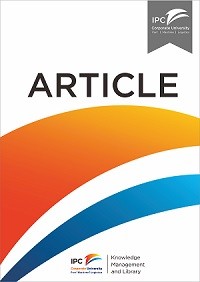Article
Emergency relief supply chain design and trade-off analysis
Emergency relief supply chain (ERSC) design is an important strategic decision that significantly affects the overall performance of emergency management activities. The performance of an ERSC can be measured by several performance measures some of which may conflict with each other. The purpose of this paper is to propose an ERSC design framework by simultaneously taking total logistics cost (TLC), risk level, and amount of demands covered in an ERSC into consideration.
Ketersediaan
#
IPC Corporate University Library
ATC LO FEN e C.1
ATC1601919
Tersedia
Informasi Detail
- Judul Seri
-
Journal of Humanitarian Logistics and Supply Chain Management
- No. Panggil
-
ATC LO FEN e
- Penerbit
- USA : Emerald Insight., 2015
- Deskripsi Fisik
-
28 p .
- Bahasa
-
English
- ISBN/ISSN
-
-
- Klasifikasi
-
LO
- Tipe Isi
-
-
- Tipe Media
-
-
- Tipe Pembawa
-
online resource
- Edisi
-
Vol. 5 No. 2, 2015 pp. 162-187
- Subjek
- Info Detail Spesifik
-
-
- Pernyataan Tanggungjawab
-
Keli Feng
Versi lain/terkait
| Judul | Edisi | Bahasa |
|---|---|---|
| Estimating trade-off among logistics cost, CO2 and time: A case study of container transportation systems in Korea | Vol. 16, No. 1, March 2012, 85–98 | en |
| Reducing National Freight Logistics Costs Risk In A High-Oil-Price Environment : A South African Case Study | Vol. 25 Iss 1 pp | en |
| National-Level Logistics Costs: An Overview of Extant Research | Vol. 18, No. 4 | en |
| Modelling the impacts of ICT adoption for inter-modal transportation | Vol. 42 No. 2, 2012 | en |
| Strategic trade-off between vessel delay and schedule recovery: an empirical analysis of container liner shipping | en | |
| Driving forces of road freight CO2 in 2030 | Vol. 45 No. 3, 2015 pp. 260-285 | en |
Lampiran Berkas
Komentar
Anda harus masuk sebelum memberikan komentar

 Karya Umum
Karya Umum  Filsafat
Filsafat  Agama
Agama  Ilmu-ilmu Sosial
Ilmu-ilmu Sosial  Bahasa
Bahasa  Ilmu-ilmu Murni
Ilmu-ilmu Murni  Ilmu-ilmu Terapan
Ilmu-ilmu Terapan  Kesenian, Hiburan, dan Olahraga
Kesenian, Hiburan, dan Olahraga  Kesusastraan
Kesusastraan  Geografi dan Sejarah
Geografi dan Sejarah